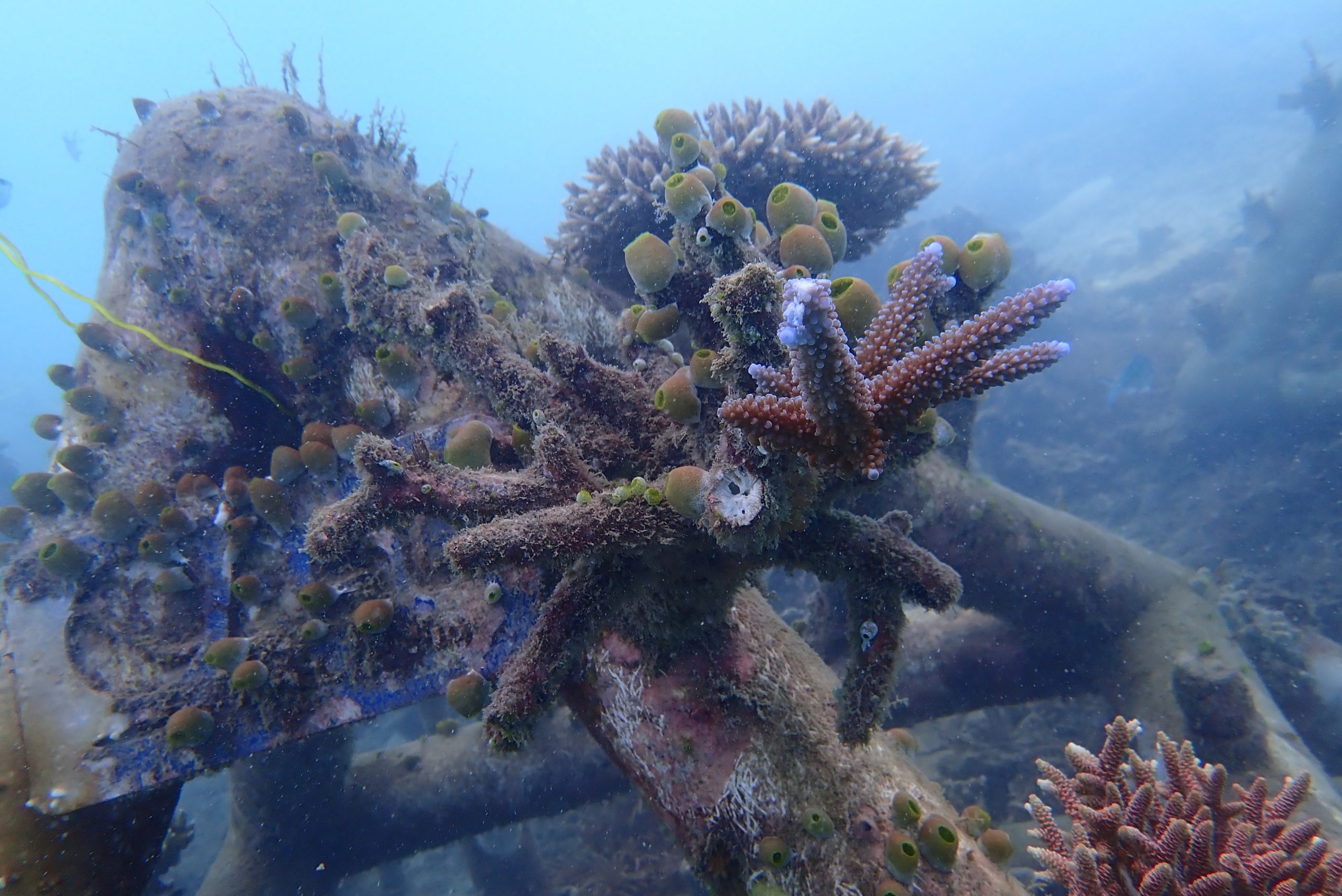Sangiang Marine Ecosystem Restoration Using PVC Artificial Coral Reef

-
Date:
24 Jun 2021 -
Author:
KEHATI
The quality of coral reefs has generally declined in Indonesia, notably in the region of Sangiang Island Marine Natural Tourism Park (known as TWAL: Taman Wisata Alam Laut), Banten. Because of this, PT. Asahimas Chemical is working with the Kehati Foundation to execute a coral reef rehabilitation initiative in this area from 2018 to 2022. Using polyvinyl chloride modules (PVC), rehabilitation was done utilizing an artificial reef transplant approach.
Within the administrative region of Cikoneng Village, Anyer District, Serang Regency, Banten Province, Sangiang Island is situated in the Sunda Strait, roughly 10 kilometers from Anyer Beach. According to the Decree of the Minister of Forestry No. 55/KptsII/1993, dated 8 February 1993, the Sangiang Island region currently has the status of a Natural Tourist Park with an area of 528.15 hectares. In the dive stations in Legon Waru and Legon Bajo, coral reef restoration was done.
In order to serve as a habitat for fish, a shelter, a location for marine animals to look for food, and a place for them to reproduce, artificial reefs are built and placed at the bottom of the ocean. With the help of holes and cavities, this artificial coral reef is produced to be durable.
Artificial reefs come in a variety of shapes and are made from a variety of materials, including PVC, concrete, wooden beams, and boards. Although the construction is rather simple to make, professionals are needed to set it on the seafloor.
“Our idea was to use PVC. We picked PVC since our business is involved in the chemical industry, which produces materials used to make PVC,” according to Bakti Sulistyono, environmental manager at PT Asahimas Chemical.
He continued, “We selected Sangiang because it is close to our industrial location, and for its implementation we are aided by the Kehati Foundation as experts in the field of artificial coral implantation.
Under the slogan “chemistry for the blue planet,” PT. Asahimas Chemical aspires to maintain environmental sustainability.
According to Bakti Sulistyono, “We have a social obligation to the community and the environment.”
Divers commonly travel to the Sangiang region, however the coral reefs there have been harmed by the sedimentation rate and negligent anchoring.
Toufik Alansar, manager of the Kehati Foundation’s Marine Ecosystem Program, claimed that fishing tactics utilized by local populations that were unfriendly to the environment, anchor dumping, snorkeling activities, and strong currents were the main causes of the harm to the marine area.
The area needs conservation as well as rehabilitation to prevent further harm in the future. The program also seeks to improve biological production, coastal fisheries resources, and ecosystem processes because of this.
The quality of coral reefs has generally declined due to climate change, unsustainable fishing practices, and development-related side effects, not just on Sangiang Island.
Toufik stressed that in addition to rehabilitation utilizing the artificial reef approach, it is also required to ensure monitoring, oversight, and surveillance by relevant parties, particularly the management of the Sangiang Marine Natural Tourist Area (TWAL), so that it is no longer destroyed.
Because artificial reefs won’t be as effective as natural ones, Toufik said, the situation has improved but hasn’t yet fully recovered.
PT Asahimas Chemical is still dedicated to continuing despite the future possibilities because the area still need restoration. PVC modules were used in trials of artificial reef installations in 2016 and 2017. After these tests were considered successful, the long-term program—which covers the years 2018 to 2023—was maintained.
“A five-year relationship with the Kehati Foundation was agreed upon in the MOU,” said Bakti Sulistyono.
In 2021, PT. Asahimas Chemical and the Kehati Foundation worked together on a project for the Pandeglang Mangrove conservation and rehabilitation initiative.
